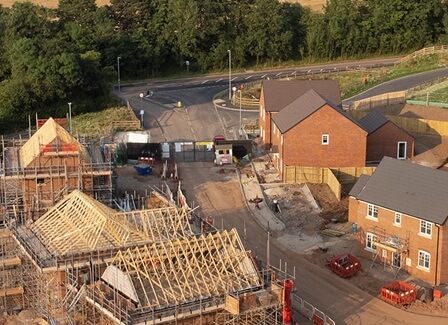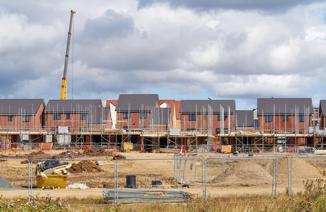
Real estate law services
Real estate law affects all businesses. You could be a private developer developing a new-build, mixed-use scheme; a public sector body driving a regeneration project; an end occupier looking to secure its head office; or a retailer looking to re-gear its current occupation. You could be an operator rolling out an aggressive acquisition programme.
Why choose Browne Jacobson's real estate law services?
Whoever you are and whatever sector you’re working in, we offer a heavy-weight, commercial real estate legal team of over 100 lawyers across our offices, who are trusted to get projects and transactions over the line efficiently and effectively.
The strength of our commercial real estate services lies not just in the quality of our people, but also in the deliberate mix of our private sector, public sector and third sector work. Our clients tell us that our ‘cross sector’ knowledge adds real value to the real estate service we provide.
Our real estate lawyers are commercially minded, and we say it ‘how it is’. We’ll work with you to understand your aims and your appetite to risk, to get you the best deal achievable in as short a time as possible.
What we do
- Our clients - we act for a stellar list of commercial real estate clients.
- Our experience - in line with our firm’s sector focus, our commercial real estate lawyers are at the cutting edge of society’s biggest issues in the development and regeneration, retail consumer and logistics, education, health and social care and government and housing association sectors.
"Found the approach to understanding a clients needs and then identifying the key team members who were best served to deliver the right advise was very straightforward."
Featured experience
Westerman Homes: sale of its strategic land portfolio
Having acted for Westerman Homes over the decades helping to build its portfolio, we advised our client on the sale of its strategic land portfolio (725 acres across Nottinghamshire and Derbyshire) to Peveril Homes and Peveril Securities.
Motorsport Vision Limited: redevelopment of historic Old Museum
We acted for Motorsport Vision Limited on the redevelopment of the historic Old Museum at Donington Racetrack and the grant of a new lease to new occupier, Superbikes. A fantastic new name to add to the roster of tenants and occupiers on the estate.
DPD: acquisition of leasehold premises
We acted for DPD in their acquisitions of leasehold premises in York and in Washington; both complex transactions involving planning issues and an overage agreement. Both deals completed on time notwithstanding various challenges.
Chesterfield Borough Council: acquisition of The Pavements Shopping Centre
We acted for Chesterfield Borough Council on the strategic acquisition of The Pavements Shopping Centre in Chesterfield from investment company vendors. The resulting merger of the Council’s existing leasehold and freehold interests means that the Council takes control of this important asset in the region.
Frequently asked questions
Real estate law, also known as property law, specifically manages transactions associated with residential and commercial properties. It encompasses specialized fields like property finance, mortgage lending, and social housing within its domain of regulation.
Testimonials
"I was very impressed with how they seamlessly used specialists within the firm to advise on complex issues without any hassle for me as a client. A firm who really want to help and not just earn fees!"
Key contacts

Sarah Parkinson
Partner

Barry Sully
Partner

Caroline Green
Senior Partner

Dominic Swift
Partner

Victoria Thourgood
Partner

Gabor Taller
Partner

Suki Tonks
Partner

Robert Wofinden
Partner









































